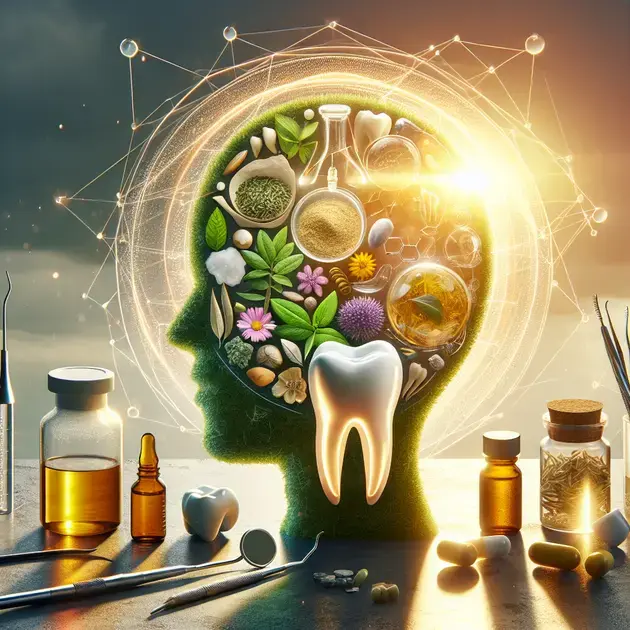Dealing with a tooth with a cavity can be a stressful experience, but it’s important to address the issue promptly to prevent further complications. Cavities are caused by the bacteria in the mouth that produce acid and erode the tooth enamel, leading to decay. If left untreated, a cavity can progress and cause pain, infection, and potentially even tooth loss.
Visiting a dentist for a comprehensive evaluation is crucial in dealing with a tooth with a cavity. During the examination, the dentist will assess the severity of the cavity and recommend the appropriate treatment, which may include dental fillings, root canals, or in more severe cases, tooth extraction. Early detection and intervention can help save the tooth and prevent the need for more extensive procedures in the future.

The Importance of Prompt Treatment for Cavities
The Importance of Prompt Treatment for Cavities
When it comes to maintaining good oral health, prompt treatment for cavities is crucial. Cavities, also known as dental caries, are permanently damaged areas in the hard surface of your teeth that develop into tiny openings or holes. If left untreated, cavities can lead to more serious oral health issues, such as toothache, infection, or even tooth loss. Therefore, it is essential to address cavities as soon as they are detected.
Step 1: Regular Dental Check-ups
Scheduling regular dental check-ups with your dentist is the first step in prompt cavity treatment. During these check-ups, your dentist will examine your teeth for any signs of decay or cavities. Early detection allows for timely intervention to prevent further damage.
Step 2: Professional Dental Treatment
If a cavity is detected, your dentist will recommend the appropriate treatment, which may include dental fillings, crowns, or root canal therapy, depending on the severity of the decay. It is important to follow your dentist’s recommendations to prevent the cavity from worsening.
Step 3: Good Oral Hygiene Practices
Practicing good oral hygiene at home is essential for cavity prevention and treatment. Brushing your teeth twice a day, flossing regularly, and using fluoride toothpaste can help to remove plaque and prevent further decay in the affected tooth.
Step 4: Healthy Diet Choices
Eating a balanced diet low in sugary and acidic foods can also contribute to cavity treatment and prevention. Limiting your intake of sugary snacks and beverages can help reduce the amount of harmful bacteria that feed on sugar and produce acid, which can lead to tooth decay.
Step 5: Consistent Follow-up Care
After receiving treatment for cavities, it is important to follow up with your dentist regularly to monitor the healing process and ensure that the cavity does not return. Your dentist may recommend additional preventive measures to maintain the health of your teeth and prevent future cavities.

Understanding the Link Between Diet and Dental Health
When it comes to maintaining good dental health, diet plays a crucial role. The foods we eat can have a significant impact on the health of our teeth and gums. A diet high in sugary and acidic foods can contribute to tooth decay and cavities. On the other hand, a diet rich in nutrients like calcium, vitamin D, and phosphorus can help strengthen the teeth and prevent dental issues.
Consuming a diet that is balanced and nutritious is essential for overall dental health. Foods that are high in sugars and carbohydrates can lead to the production of acids in the mouth, which can erode the enamel and lead to cavities. It is important to limit the intake of sugary snacks and beverages and opt for healthier alternatives like fruits, vegetables, and dairy products.
Additionally, maintaining proper oral hygiene practices, such as regular brushing and flossing, is crucial for keeping cavities at bay. A diet that is complemented by good oral care habits can help maintain a healthy smile and prevent dental issues in the long run.
By understanding the link between diet and dental health, individuals can make informed choices about the foods they consume and how it can impact their oral health. Making small changes to one’s diet can have a significant positive effect on overall dental well-being.
Overall, a balanced diet that is low in sugars and high in essential nutrients is key to promoting good dental health and preventing cavities. By being mindful of the foods we eat and practicing good oral hygiene, we can maintain healthy teeth and gums for years to come.
Common Signs and Symptoms of a Tooth Cavity
Recognizing the signs and symptoms of a tooth cavity is essential for early detection and treatment. Common indicators of a cavity include tooth sensitivity to hot, cold, or sweet foods, as well as pain or discomfort when biting down. In some cases, visible holes or pits in the teeth may also be a sign of tooth decay.
If left untreated, a cavity can progress and lead to more severe symptoms, such as persistent toothache, swelling around the affected tooth, or even an abscess. It is important to visit a dentist regularly for check-ups and cleanings to detect cavities early and prevent further complications.
Other symptoms of a tooth cavity may include bad breath, unpleasant taste in the mouth, or visible staining on the surface of the tooth. Being proactive about dental care and paying attention to any changes in oral health can help catch cavities in their early stages and prevent the need for extensive dental procedures.
Individuals experiencing any of these symptoms should schedule an appointment with their dentist for a comprehensive examination. Early intervention can help preserve the natural tooth structure and prevent the need for more invasive treatments down the line.
Overall, being aware of the common signs and symptoms of a tooth cavity is crucial for maintaining good oral health. By seeking timely treatment and practicing preventive care, individuals can safeguard their smiles and prevent the progression of dental issues.
Exploring Natural Remedies for Cavities and Tooth Decay
While professional dental treatment is often necessary to treat cavities and tooth decay, exploring natural remedies can complement traditional interventions and support overall oral health. Natural remedies like oil pulling with coconut oil, rinsing with saltwater, and applying clove oil to the affected area have been used for centuries to help alleviate tooth pain and reduce bacterial growth.
Incorporating probiotics into one’s diet can also promote a healthy balance of oral bacteria and support the body’s natural defenses against decay-causing microbes. Additionally, consuming foods rich in vitamins and minerals, such as leafy greens, nuts, and seeds, can help strengthen the teeth and gums from the inside out.
Herbal remedies like green tea, neem, and aloe vera have antibacterial properties that can help combat oral pathogens and reduce inflammation in the mouth. These natural substances can be used as mouthwashes or topical treatments to promote oral healing and prevent the progression of cavities.
It is important to note that while natural remedies can be beneficial for oral health, they should not replace professional dental care. Regular visits to the dentist for cleanings and check-ups are essential for maintaining good oral hygiene and addressing any underlying dental issues.
By exploring natural remedies for cavities and tooth decay in conjunction with professional dental care, individuals can take a holistic approach to oral health and support their overall well-being. Making informed choices about oral care and incorporating natural remedies into one’s routine can help promote a healthy smile for years to come.
Conclusion
In conclusion, the connection between diet and dental health is undeniable. A balanced and nutritious diet rich in essential nutrients like calcium, vitamin D, and phosphorus is crucial for maintaining optimal oral health. By being mindful of the foods we consume and limiting the intake of sugary and acidic foods, individuals can significantly reduce the risk of tooth decay and cavities.
Recognizing the signs and symptoms of a tooth cavity early on is key to preventing further complications. From tooth sensitivity to visible staining, being proactive about dental care and seeking timely treatment can help preserve natural tooth structure and overall oral health. Regular visits to the dentist for check-ups play a vital role in detecting cavities and addressing any underlying dental issues promptly.
Exploring natural remedies alongside professional dental care can offer a holistic approach to oral health. Incorporating practices like oil pulling with coconut oil, consuming probiotics, and utilizing herbal remedies can complement traditional interventions and support oral healing. It is essential to remember that while natural remedies can be beneficial, they should not replace professional dental treatment.